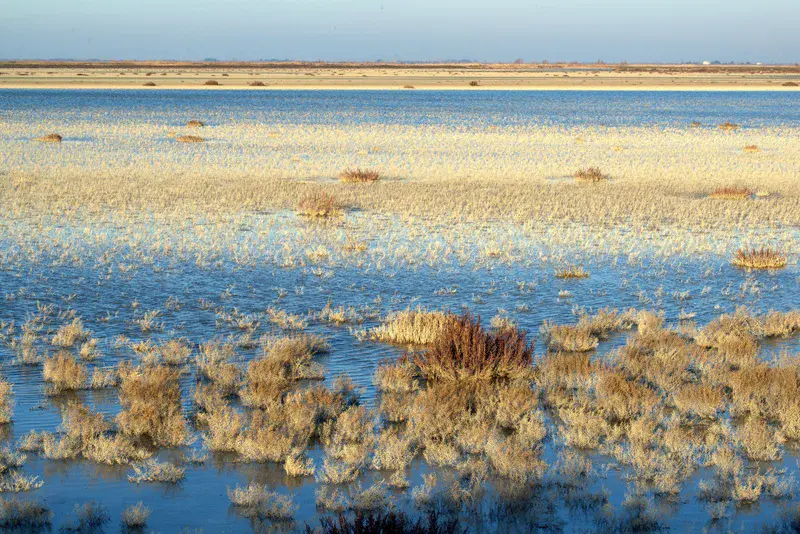
The kidneys of the Planet
In the past, humans considered wetlands as morbid environments where it was difficult, if not impossible, to live. Wetlands, instead, are vital to the health of wildlife and humans, as the Ramsar convention stated in 1971. Wetlands regulate the water flow, buffering draughts as well as floods, and also contribute to the provision of clean water. In addition to water flow regulations and to the provision of habitat for thousands of species, including hundreds of species of migrant birds, the ability to recycle nutrients is maybe the most amazing among the important ecosystem functions provided by wetlands, so much that they have been called “the kidneys of the planet”.
The role of chemical and biological cycling of nutrients, trace elements and toxic chemicals, as well as the role of carbon sequestration, water purification and primary productivity needs to be studied in depth by a multidisciplinary scientific community.
Wetlands will reveal to be extremely surprising as well as beautiful, as in this picture shot in Camargue in a freezing and windy winter day.
Categories
- Biogeosciences (609)
- Energy, Resources and the Environment (364)
- Hydrological Sciences (685)
- People (321)
Location
- Europe (3919)
- Western Europe (797)
- France (180)
- Exact location (4.6481 E, 43.4775 N)
Tags
Colours
Image properties
7378 × 4924 px;
image/jpeg; 8.7 MB
Camera:
Nikon D800E
Software: preview
Taken on 18
January
2017
Submitted on 28 February 2017
Licence
Creative Commons Attribution 3.0 Unported (CC BY 3.0)
Credit
Elisa Palazzi (distributed via imaggeo.egu.eu)
Share
Appreciate
Report